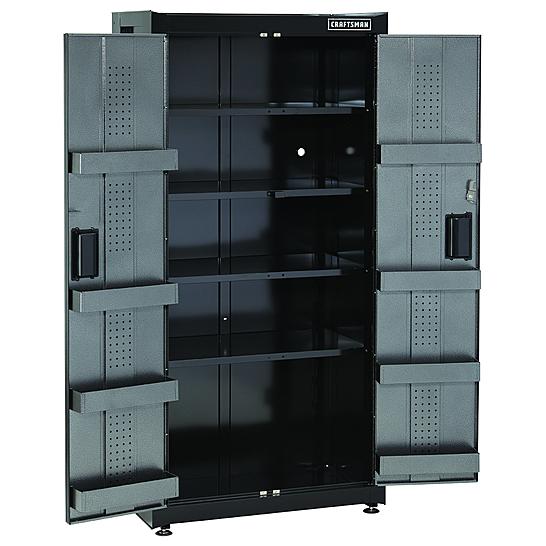Organizing tools, parts and supplies is important, but especially if you have a large collection. Recently I was asked, “Any ideas how Paper Tiger system could be used for finding tools, parts and supplies for a handyman business?”, and I thought I would share my response in case it could help others. See below the steps to organize your tools with Paper Tiger.

Take a look at this 5 drawer tool cabinet as an example. You would want a Location in Paper Tiger entitled Tools or something similar. For this example, I’ll use Tools. Each Item number then would be Tools 1, Tools 2, Tools 3, etc. You would label the drawers to correlate to the item numbers/names indexed in Paper Tiger. For example, each drawer in this case would be labeled from top to bottom, top drawer would be labeled Tools 1, 2nd drawer would be labeled Tools 2, etc., and items in each drawer would be listed in the keywords section correlating to the correct Item number.
Item # = Item Name > Keywords
Tools 1 = Drawer 1 > top drawer, 5 drawer tool cabinet: small parts, compartments 1.) 1″ nails, 2.) 2″ nails, 3.) 3″ nails 4.) 1/2″ screw 5.) 1 1/2″ screws, 6.) 2″ screws 7.) 2 1/2″ screws 8.) 3″ screws 9.) drywall inserts, 10.) wire nuts …. etc. (Note: the numbers in this keywords section correlates to the compartments which you will also need to number.
Tools 2 = Drawer 2 > 5 drawer tool cabinet: screwdrivers, pliers, pencils, wrenches, channel locks, vice grip, wood chisel, awl,
Tools 3 = Drawer 3 > 5 drawer tool cabinet: sandpaper, files, scrapers, spare blades, putty knife, tapers knife, utility knife
Tools 4 = Drawer 4 > 5 drawer tool cabinet: hammers, tape measure, small square, level, stud finder
Tools 5 = Drawer 5 > 5 drawer tool cabinet: drill & screw gun, drill bits & screw gun tips
Tools 6 = Storage > bulk storage area in bottom of 5 drawer tool cabinet: welding helmet, split leather sleeves, welding wire & electrodes, welding kits
Tools 7 = Tool box with painting supplies > (then list the items contained and where you keep this in your keywords section)
Tools 8 = Tool box with plumbing supplies > (then list the items contained and where you keep this in your keywords section)
Tools 9 = Truck box > (with dividers numbered) 1.) circular saw, reciprocating saw, jig saw, hacksaw 2.) crowbar, rubber mallet, staple gun, auto nailer, 3.) detail sander, planer, 4.) plumb line, clamps, extension cords, continuity tester and volt/amp meter 5.) Eye and ear protection, dust masks, knee pads and latex gloves …. etc.
Tools 10 = Floor cabinet > in garage, shelf 1.) Impact driver, safety goggles, work gloves, rags, shelf 2.) bin dividers filled with bolts, nuts, wire connectors …etc. (OR you could have a separate item in Paper Tiger for each shelf.)
Tools 11 = and other things you want to index for organizing.
With Paper Tiger, there is a lot of flexibility to organize any physical item that you can put a number onto, and list the contents to inventory your collections. Whether it’s tools, crafts, books, or paper files, you can itemize any type of item and be able to find what you need, and then be able to know where it belongs when you (or family members) need to put it back.

Also Meggin McIntosh does a great job demonstrating how she organizes and indexes bins in her storage unit about 47 minutes into this webinar. You might find this helpful to watch.

I’d love to get your feedback on my suggestions above to see how this works for you. How do you organize your tools, parts, and supplies?